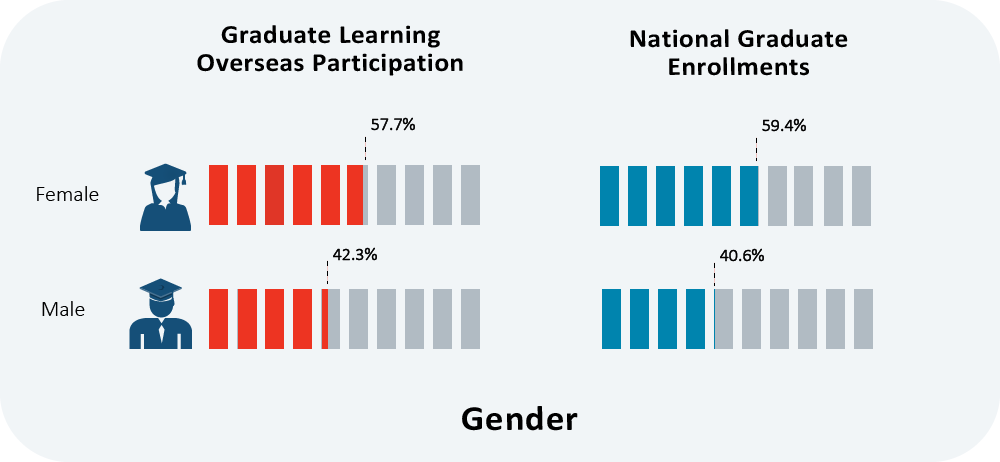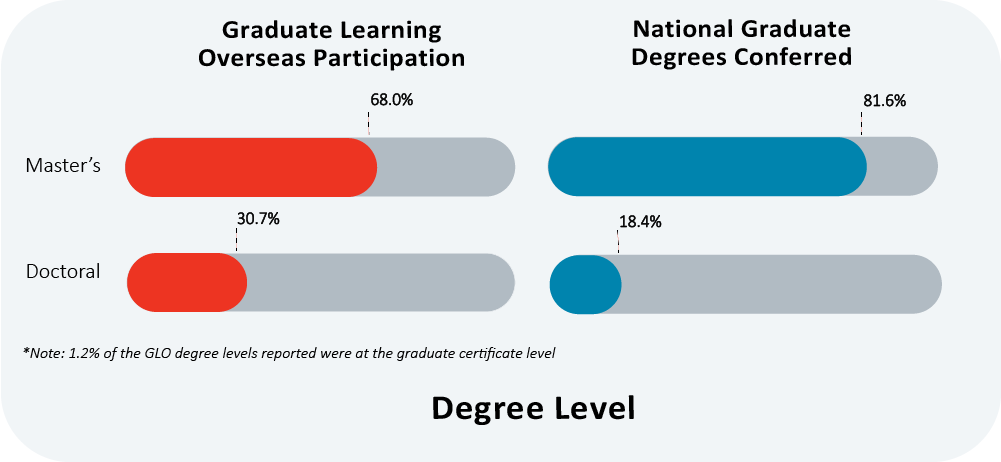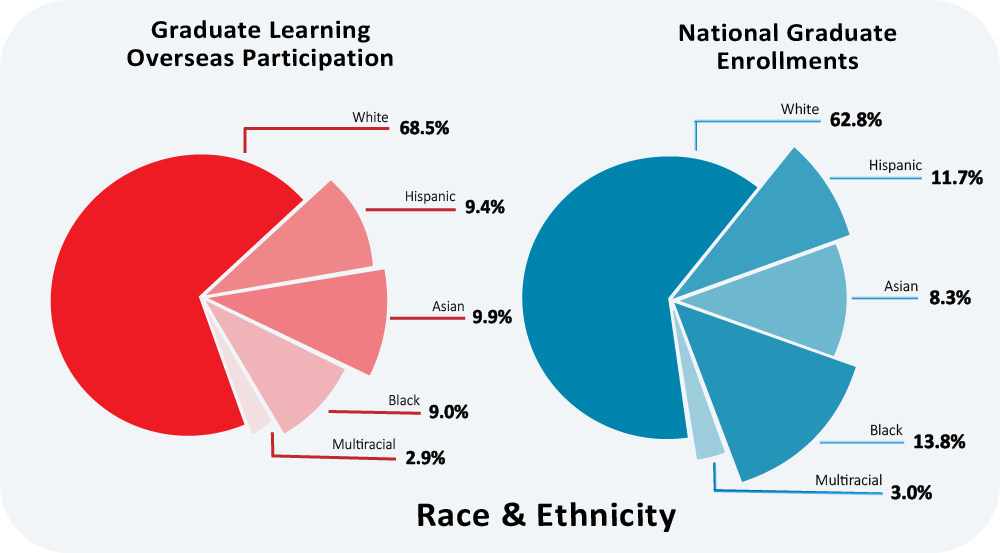Diversity
Graduate student participation in study abroad is representative of the graduate student population.
A total of 42% of graduate students engaged in learning overseas are male, higher than the overall U.S. study abroad population in which only 33% of students are male (Open Doors, 2018) but in line with the proportion of male graduate students enrolled in U.S. graduate education (IPEDS). In terms of ethnic and racial identity, 69% of U.S. students engaged in overseas learning identified as white, an overrepresentation of about 5% compared with national graduate school enrollments. Students identifying as Asian are slightly overrepresented as well, while Hispanic and Black students are underrepresented by about 2 and 5 percentage points, respectively.



